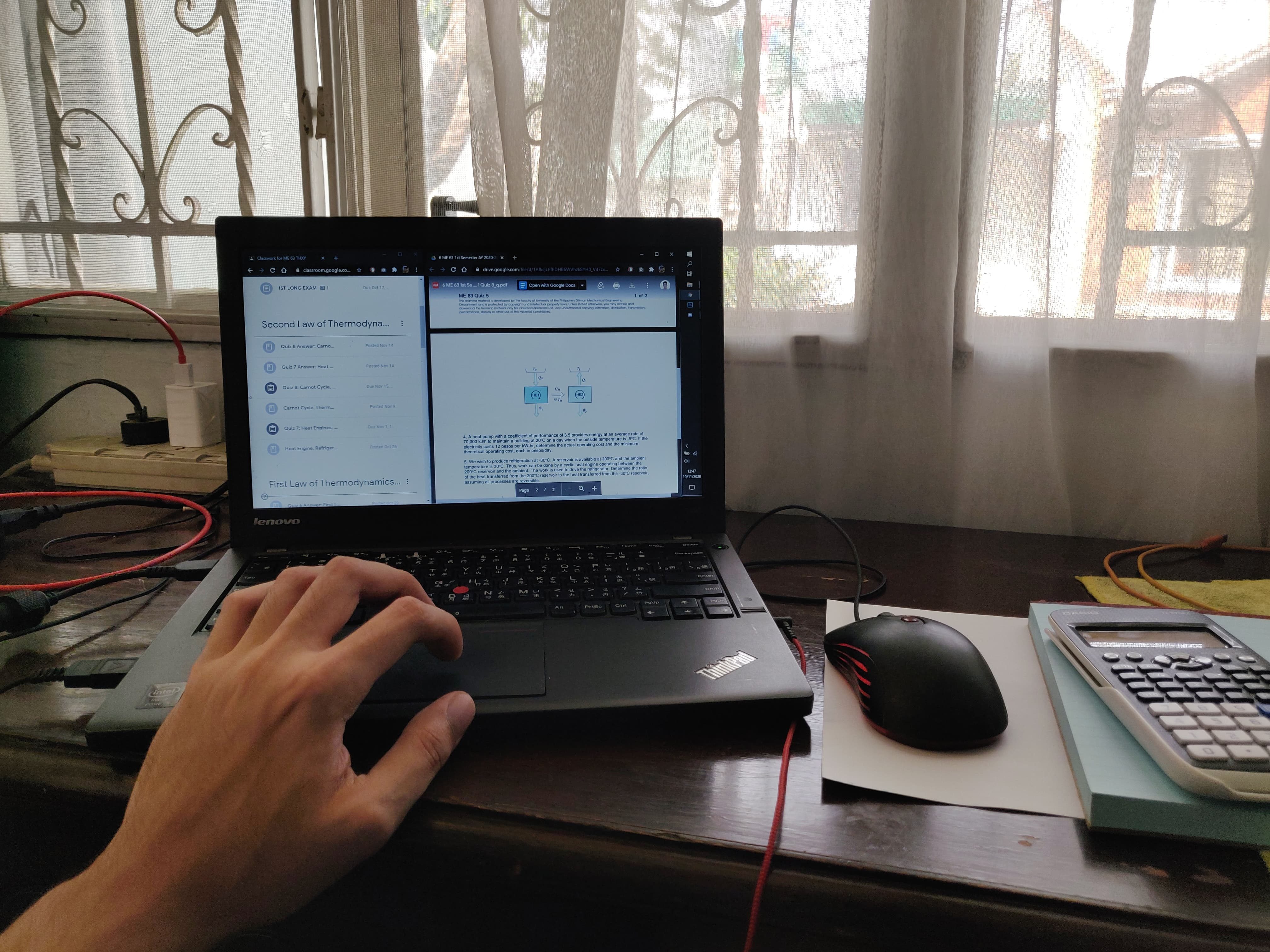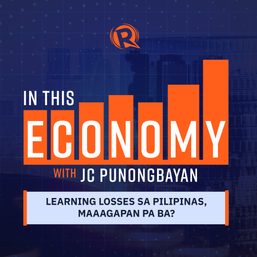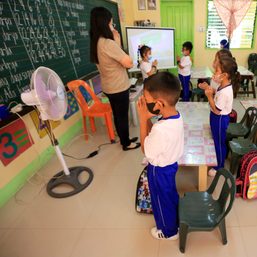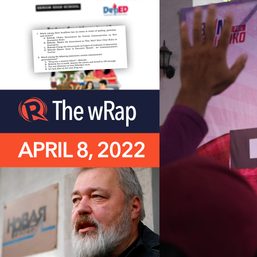SUMMARY
This is AI generated summarization, which may have errors. For context, always refer to the full article.

University of the Philippines Diliman (UPD) Mechanical Engineering student Roy Fua expected to graduate this December 2020 but now foresees concluding his studies in June 2021.
He said this is because his department could not offer alternatives to subjects that need tangible facilities, equipment, and manpower.
“Galit [ako] dahil huling semester ko na tapos ito ‘yung dahilan para ma-delay ako…. Wala rin silang sinabi tungkol sa residency, tuition, at underloading,” Fua shared when asked about the non-offering of a subject this semester that requires power tools and manufacturing activities done with a professor’s supervision.
“Kahit advisor ko, hindi ako nirereplyan when I emailed [my advisor] about my concerns. I had to contact OUR (Office of the University Registrar) pa para lang makakuha ng sagot na maayos,” he added.
(I was mad because this was supposed to be my last semester and this was the reason why I will be delayed. They also did not mention anything about residency, tuition, and underloading. Even my advisor failed to reply to me when I emailed him about my concerns. I had to contact the Office of the University Registrar just so I could get a clear answer on this.)
Fua is just one of the many students affected by the coronavirus pandemic, which further troubled the nation’s education system that is already hurting from various distance learning woes.
With distance education in full swing, students without stable internet connection and gadgets fear that they cannot handle the remote learning set-up. This apprehension, along with financial constraints, has caused over 44,000 college students to postpone their enrollment during the first semester of School Year 2020-2021.
Although the Commission of Higher Education proposed flexible learning or employing online and offline modes of teaching amidst the pandemic, students lacking computers and reliable connections online are still at a disadvantage because transitioning to physical schooling is not guaranteed.
Fua said he feels displaced due to his life plans being altered.
“Hindi ko na alam [kung] ano gagawin ko sa buhay [ko], to be honest. I don’t know when the boards will be. I don’t know what job is viable after all of this is over. Most of my friends have graduated college and nawala na ‘yung sense of comfort na sabay-sabay naming haharapin ‘yung mga bagay-bagay.”
(I don’t know what I will be doing in life, to be honest. I don’t know when the boards will be. I don’t know what job is viable after all of this is over. Most of my friends have graduated [from] college and the sense of comfort that we will face different challenges together is gone.)
Mechanical Engineering major Jonathan* experienced the same thing as Fua, with the inability to fulfill their majors riddled anxiety amongst them.
Jonathan worries that his lengthened time in the university will prevent him from swiftly securing gainful employment after graduation.
The UPD Mechanical Engineering department refused to comment on this matter.
The limits of Ateneo de Manila University’s remote theater program
Ateneo de Manila University (ADMU) Theater Arts student Kyra Soriano faces a unique situation.
Although the ADMU Theater Arts department gave students remote versions of its Theater courses, Soriano opted not take a Technical Theater class this semester as she wants to master theater principles through physical productions.
This compromise was hard for her to make as her mental and physical health suffered due to her academic worries.
“In terms of physical well-being, there was a point during the pandemic where I lost a lot of weight due to the stress of being delayed or going into online learning,” Soriano said.
“In terms of mental well-being, my sleep patterns are, for lack of a better term, f—d up. I also have had a few more mental breakdowns over not doing well enough, especially since I’m a scholarship student,” she said.
Despite the obstacles Soriano encountered from opting out of Technical Theater this semester, she believes that her decision to extend her stay in her university can greatly benefit her.
AdMU Theater Arts Coordinator Glenn Sevilla Mas empathized with her situation and supported her decision to complete the Theater class at a later date.
“To buy time is okay, but ang [ko] tanong [ay] ‘What if the pandemic were here to stay?’ At some point, you will still enroll. Ang okay doon siguro, if this were to take place again next year, mas alam na ng teacher how to do it,” he said.
“Kasi ang problem lang naman always, even with online teaching, [ay] iyong first year lang because once you have done it na at alam mo na ‘yung pitfalls, alam mo ‘Ah, dapat pala hindi ko gawin ito.’” Sevilla added.
(To buy time is okay, but my only question is “What if the pandemic were here to stay?” At some point, you will still enroll. What would be okay for this situation is, if this were to take place again next year, the teacher would know how to do the online course because the problem is always, even with teaching, the first year because once you have done it and you know the pitfalls, you’ll know “Oh, this is what I should not do.”)
How others adapt
But there are institutions who were able to properly provide students virtual alternatives to physically-oriented courses, thus minimizing graduation delays.
Industrial Design majors at the De La Salle-College of Saint Benilde, for example, used Zoom to present their digital and physical projects to their professors.
Students based in Metro Manila, meanwhile, used short-distance delivery services to submit their small-scale projects to their teachers.
De La Salle University (DLSU) also reimagined its curriculum. In lieu of physical class activities, its College of Science presented Physics, Biology, and Chemistry majors with digital simulations.
But Biology and Chemistry students can also opt to complete laboratory courses when they are able to set foot on campus. Should it be deemed safe to return to the classroom next year, Dean Glenn Alea hopes to implement on-site laboratory classes starting January 2021.
University of Santo Tomas (UST) adjusted its laboratory classes as well, such as those for the Nursing program.
UST College of Nursing Dean Rowena Escolar-Chua stated that skills-based laboratory classes are being conducted through video conferencing platforms, with students using household materials like pillows and stuffed toys as human dummies for live demonstrations.
The Nursing program’s physical hospital tour for senior undergraduates was replaced with a virtual one. But subjects needing the participation of other people, such as those where students are required to visit communities, were postponed
“In UST, we do have what we call our partner communities. Prior to the deployment of our online classes, we already coordinated with them that the students won’t be able to go to the different clinical areas,” said Escolar-Chua.
To address this restriction, her colleagues bought a computer application that prompts students with scenarios mirroring those that client-based subjects usually discuss.
Protect well-being
While remote learning is the only way higher education units can continue classes amid the pandemic, it is worth understanding how its limitations can affect students’ well-being.
Dr Rowalt Alibudbud, psychiatrist and De La Salle University Behavioral Sciences assistant professorial lecturer, said that the scarce social interaction and the blurred at-home work-life boundaries experienced in virtual learning has made online classes taxing for students.
To alleviate students’ mental health concerns, he encourages them to seek professional help and turn to their loved ones for support.
“If coping by yourself seems to be not enough, it might be helpful to consult with a mental health professional,” he said. “If you are a student, guidance counselors are usually available to guide you through your mental health struggles.”
“Aside from professionals, you may also want to open up to friends and family members who can provide support, an open ear, and even linkages to mental health professionals,” he said. – Rappler.com
*The interviewee requested the author to conceal his real name.
Sophia Lopez is a Rappler intern and a Broadcast Communication student at the University of the Philippines Diliman.
Add a comment
How does this make you feel?




![[Time Trowel] Evolution and the sneakiness of COVID](https://www.rappler.com/tachyon/2024/02/tl-evolution-covid.jpg?resize=257%2C257&crop=455px%2C0px%2C1080px%2C1080px)




![[EDITORIAL] Ano sana ang takeaway ni Sara Duterte sa firesale ng mga laptops?](https://www.rappler.com/tachyon/2023/05/animated-DEPED-laptop-fiasco-carousel.jpg?resize=257%2C257&crop_strategy=attention)


There are no comments yet. Add your comment to start the conversation.